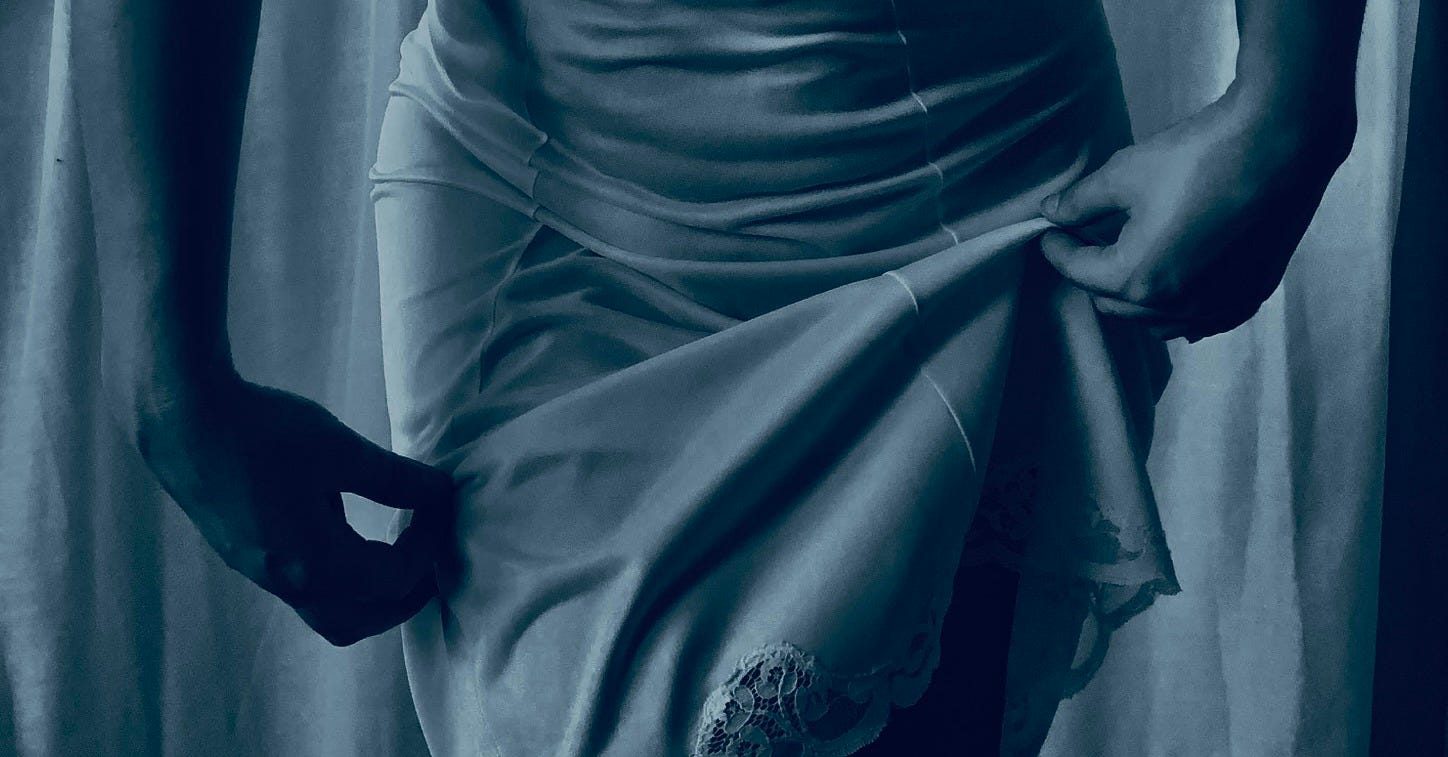The Blues & Billie Armstrong 45
MY TRICK MEMORY
Previously in The Blues & Billie Armstrong…
“I suppose you were right when you said that’s what my mother wanted too,” I said. “A bigger life, something more than normal.”
“But for her it was already too late,” Billie said.
Years later, in 1989, my Giants would finally win the National League pennant—their first World Series appearance since I was in kindergarten.
The 89 Series was famously interrupted by the Loma Prieta earthquake, which hit Candlestick Park on live television shortly before game three was scheduled to start. It’s still one of the most indelible moments in the history of TV sports.
Or is it?
For decades, whenever that event came up in conversation, I would share my where-were-you-when story thusly: I was watching in my tiny studio apartment above the newspaper where I was then employed. When the picture began to shake and flip and then disappeared completely, I started cursing at the TV, sure that some miscreants at ABC had somehow screwed up the feed and I was going to miss the entire game due solely to their incompetence. I’ll never forget it. I can still see the room, me sitting on the edge of the bed, the paint-peeling coffee table and the 29-inch RCA television, one of those big old tube models with the rounded back, thing must’ve weighed sixty pounds I swear. Indelible.
But it’s totally wrong. For some reason it was thirty years later that it finally clicked in my brain that I didn’t even move into that apartment until 1991. Somehow I’d gotten it all mixed up with something else. For thirty years.
Memory is a trickster. It sugar-talks you, builds your pride, cheers you on. It stalks you, bullies you, laughs behind your back. It cons you, betrays you, abandons you and hides your secrets in the lies it tells. You are born of it and when it dies you die. You don’t choose what you remember any more than you choose who you love.
This is the part I might have imagined.
I awoke in deep shadows, half drunk, half asleep, half-dreaming that I was standing under a waterfall. I blinked my eyes open and found Billie next to me, side-saddle on the edge of my bed. “It’s okay,” she said, and that could have been part of the dream, too. Her hair was wet and tangled in loose damp curls around her face and on her bare shoulders. She wore a white full slip, and dusty light washed in from the window and played on the folds and highlighted the lace trim against her chest.
She leaned forward and brushed hair out of my eyes and kissed me on the cheek. “Archer,” she said, and she shook her head slowly as she said it and pronounced my name in a way that spoke of more than the moment. There was something wistful and nurturing in the sound, as if it contained a full sentence within the one word—as if, instead of just my name, she’d said, “Archer, I’m afraid for your heart in this world.” I had the weird sense that I was dreaming but she was awake and had climbed through the window in the drunken night to invade my dream. She seemed to read this confusion in my eyes, and she said again, “It’s okay.”
She stood and moved to the foot of the bed, and now I realized I hadn’t quite made it under the covers when I finally sank onto the bed. And I hadn’t quite undressed. I lay on top of the blue bedspread with the abstract wave pattern, in t-shirt and white boxer shorts, my Levi cutoffs scrunched up at my ankles, roadblocked by my tennis shoes.
“Let’s get these off,” Billie said. The light danced on the white slip and I saw the form of her body underneath like smoke in a glass. She tugged each of my shoes off and set them down silently on the plank floor. My cutoffs slid past my feet and fell out of sight.
“I’m sorry,” I said. And I wished she could understand what I was referring to, what my apology, my regret, my sorriness encompassed. How big one sorry could be.
“Shhh,” she said, with her lips pursed. Then I felt the tickle of her fingers curling inside the waistband of my underwear, and she slid them down over my hips, past my knees and into the thin air beyond my feet. She held her slip up with one hand as she climbed onto the bed and straddled me on her knees. I lay in the folds of the blue bedspread, heavy and ponderous, still floating between a watery dream and the dry land of consciousness.
I reached for her, but she nimbly caught my hand in the air and returned it gently to the bed. She looked deeply into my eyes then, in my most conscious moment, with a look sad but sure, a bittersweet half-smile on her lips and a teary sheen in her eyes that I read as grim resolve.
She slid a hand down my stomach and found me hard, moved up and lowered herself onto me. The folds of the white slip puddled on my belly and thighs as if I was swimming in her. My hands remained at my sides, my arms spread out on the bed supporting my floating body.
She closed her eyes and tilted her head upward and to the right as if she was trying to catch the lyrics to a song drifting in from another room. I never took my eyes off her. I stared, gaped, dwelled. I spotlighted her in the dusty light. I inhaled the scent of her soap and sex and shivered at the scratch of lace where the hem of the slip brushed my stomach. I listened to the rusty whisper of the bed springs. It was all over before I could identify its nature or purpose, before I could guess its why.
When she turned her face back to me there were tears on her cheek like tiny baubles of light. She took my head in her hands and leaned over and whispered one more time, “It’s okay, Archer,” and kissed me on the forehead. She climbed off the bed and for a moment the moonlight sparked her red hair like a flame and set the white slip aglow. She looked like a candle moving away toward the dark.
The moment gone, her shadow ducked back through the window to her room. I heard the wooden scrape of the window sliding shut. The light went out.
The Blues & Billie Armstrong is a work of fiction. Names, characters, businesses, places, events and incidents in this book are either the product of the author's imagination or used in a fictitious manner. Any resemblance of the fictional characters to actual persons, living or dead, is purely coincidental.
© All Rights Reserved



